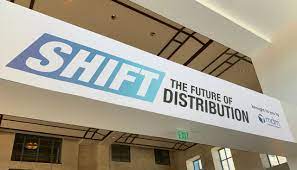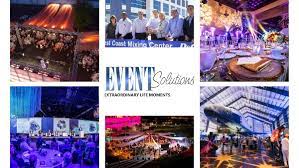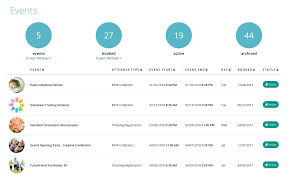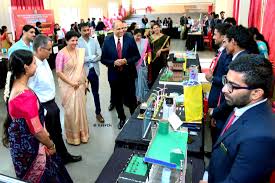Exhibition Management: The Key to Successful Events
Exhibitions have long been recognized as powerful platforms for businesses to showcase their products, services, and innovations. They provide a unique opportunity for companies to connect with their target audience, generate leads, and build brand awareness. However, organizing a successful exhibition requires meticulous planning and effective management. In this article, we will explore the key elements of exhibition management and how they contribute to the overall success of an event.
Strategic Planning:
Every successful exhibition starts with a well-defined strategy. This involves setting clear objectives, identifying the target audience, and determining the desired outcomes. A strong strategic plan helps in guiding all subsequent decisions and actions throughout the exhibition planning process.
Venue Selection:
Choosing the right venue is crucial for exhibition success. Factors such as location, accessibility, size, amenities, and cost must be carefully considered. The venue should align with the target audience and provide adequate space for exhibitors to showcase their offerings effectively.
Budgeting:
Creating a comprehensive budget is essential to ensure financial stability throughout the exhibition planning process. It involves estimating costs for venue rental, booth construction, marketing materials, staff training, logistics, and other related expenses. A well-managed budget helps in avoiding overspending and maximizing return on investment.
Booth Design and Layout:
An attractive booth design that stands out from the crowd is vital to attract visitors’ attention. Effective booth layout considers traffic flow, product placement, interactive elements, signage visibility, seating arrangements (if applicable), and overall aesthetics. A well-designed booth enhances exhibitor engagement and visitor experience.
Marketing and Promotion:
Effective marketing strategies play a critical role in driving attendance at exhibitions. Utilizing various channels such as social media platforms, email marketing campaigns, press releases, online advertising, industry partnerships, and targeted invitations can significantly increase event visibility and attract potential attendees.
Exhibitor Management:
Managing exhibitors is a crucial aspect of exhibition management. This includes providing clear guidelines, facilitating booth setup and dismantling, coordinating logistics, ensuring exhibitor satisfaction, and addressing any concerns promptly. Effective communication and support contribute to exhibitors’ positive experience, encouraging their participation in future events.
Visitor Engagement:
Engaging visitors is essential to create a memorable experience and encourage meaningful interactions. Incorporating interactive elements like product demonstrations, workshops, presentations, contests, or networking opportunities can enhance visitor engagement and leave a lasting impression.
On-Site Operations:
Efficient on-site operations are vital for smooth event execution. This involves managing registration processes, crowd control, security measures, technical support, food and beverage services (if applicable), and overall event logistics. A well-coordinated team ensures that all aspects of the exhibition run seamlessly.
Post-Event Evaluation:
Conducting a thorough post-event evaluation helps in assessing the success of the exhibition against set objectives. Gathering feedback from exhibitors and attendees provides valuable insights for future improvements. Analyzing key metrics such as lead generation, sales conversions, attendee satisfaction levels, and return on investment helps measure the event’s overall impact.
In conclusion, successful exhibition management requires careful planning and execution of various elements such as strategic planning, venue selection, budgeting, booth design and layout, marketing and promotion strategies, exhibitor management, visitor engagement tactics, on-site operations management, and post-event evaluation. By focusing on these key areas with attention to detail and effective coordination among all stakeholders involved in the process – organizers, exhibitors, attendees – exhibitions can become powerful platforms for business growth and success.
5 Advantages of Exhibition Management: Boosting Brand Awareness, Cost-Effectiveness, Networking Opportunities, Lead Generation, and Enhanced Visibility
- Increase Brand Awareness
- Cost Effective
- Networking Opportunities
- Lead Generation
- Increased Visibility
Challenges of Exhibition Management: High Costs, Limited Audience Reach, Time-Consuming Tasks, Complex Logistics, and Risk Management Concerns
- High Costs
- Limited Audience Reach
- Time-Consuming
- Difficult Logistics
- Risk Management Issues
Increase Brand Awareness
Increase Brand Awareness: Exhibitions provide a great opportunity to showcase your brand and build relationships with potential customers.
In today’s competitive business landscape, building brand awareness is crucial for success. Exhibitions offer an ideal platform to showcase your brand and create a lasting impression on attendees. By participating in exhibitions, you can effectively increase brand visibility and reach a targeted audience.
Exhibitions allow you to present your products or services in a visually appealing and interactive manner. With a well-designed booth and engaging displays, you can capture the attention of visitors and leave a lasting impression. This visual impact helps to create brand recall, making it more likely for attendees to remember your company long after the event.
Moreover, exhibitions provide an opportunity to connect with potential customers face-to-face. Building relationships is an essential aspect of successful business growth. By engaging in conversations with attendees, understanding their needs, and providing solutions, you can establish trust and credibility for your brand. These personal interactions help in forging meaningful connections that can lead to long-term customer relationships.
Exhibitions also allow you to gather valuable feedback from attendees about your products or services. This feedback can be used to improve your offerings and enhance customer satisfaction. Moreover, positive experiences shared by attendees during the exhibition can contribute to word-of-mouth marketing, further increasing brand awareness among their networks.
Furthermore, exhibitions often attract industry professionals, influencers, and media representatives who are interested in the latest trends and innovations. By participating in such events, you have the opportunity to gain exposure through media coverage or collaborations with influential individuals or organizations. This exposure helps in positioning your brand as a leader within your industry.
Overall, exhibition management plays a crucial role in increasing brand awareness. Through visually appealing booths, engaging displays, personal interactions with attendees, gathering feedback, and leveraging industry connections, exhibitions provide an effective platform for showcasing your brand’s unique value proposition. By making the most of these opportunities at exhibitions, you can significantly enhance your brand’s visibility and establish a strong presence in the market.
Cost Effective
Cost Effective: The Advantage of Exhibition Management
In today’s competitive business landscape, finding cost-effective marketing strategies is crucial for companies of all sizes. One significant benefit of exhibition management is its cost-effectiveness. Exhibitions offer a unique opportunity to reach a large number of people in one place, making it an efficient and affordable marketing solution.
Compared to other forms of marketing, such as advertising or direct mail campaigns, exhibitions provide a platform where businesses can showcase their products or services directly to a targeted audience. By participating in an exhibition, companies can engage with potential customers face-to-face, allowing for more personalized interactions and the opportunity to build meaningful connections.
The cost-effectiveness of exhibitions lies in their ability to maximize exposure while minimizing expenses. Instead of investing in various marketing channels separately, exhibitions bring together a diverse range of industry professionals and potential customers under one roof. This concentrated gathering allows businesses to make a significant impact on a large audience for a relatively low cost.
Exhibition management involves careful planning and budgeting to ensure that resources are allocated efficiently. Companies can choose booth sizes and locations that best suit their needs and budgetary constraints. Additionally, by participating in group exhibitions or industry-specific events, businesses can share costs with other exhibitors, further reducing individual expenses.
Moreover, the cost-effectiveness extends beyond the event itself. Exhibitions provide opportunities for networking and collaboration among industry peers, potentially leading to partnerships or joint ventures that can yield long-term benefits. The connections made at exhibitions can extend far beyond the event’s duration and result in valuable business opportunities without additional marketing expenditures.
Another aspect that contributes to the cost-effectiveness of exhibitions is the potential for immediate feedback and measurable results. Companies can gauge customer interest through direct conversations, collect leads for follow-up activities, and even generate on-site sales. This real-time feedback allows businesses to evaluate their exhibition strategies promptly and make necessary adjustments for future events.
In conclusion, exhibition management offers a cost-effective marketing solution that allows businesses to reach a large number of people in one place for a relatively low cost. By participating in exhibitions, companies can maximize their exposure, engage with potential customers directly, and build valuable connections within their industry. The cost-effectiveness of exhibitions, coupled with the potential for immediate feedback and measurable results, makes it an attractive option for businesses looking to optimize their marketing efforts while staying within budget.
Networking Opportunities
Networking Opportunities: Building Connections for Future Success
One of the significant advantages of exhibition management is the ample networking opportunities it provides. Exhibitions bring together industry professionals, experts, and potential clients under one roof, creating a conducive environment for networking and relationship-building. These connections can prove to be invaluable assets for your business in the long run.
Attending exhibitions allows you to meet like-minded individuals who share a common interest in your industry. It provides a platform to engage in meaningful conversations, exchange ideas, and gain insights from experienced professionals. Whether you’re an exhibitor or an attendee, exhibitions offer numerous chances to connect with industry leaders, potential partners, suppliers, and even competitors.
Networking at exhibitions opens doors to new business opportunities. By engaging in conversations with other professionals, you can discover potential collaborations or partnerships that can help expand your business reach. Building relationships with key individuals within your industry can lead to referrals, joint ventures, or even strategic alliances that benefit all parties involved.
Moreover, exhibitions often host seminars, workshops, or panel discussions where industry experts share their knowledge and expertise. Attending these sessions not only enhances your understanding of current trends but also provides opportunities to interact with speakers and fellow attendees. These interactions can lead to valuable connections and mentorship opportunities that can significantly contribute to your professional growth.
In addition to expanding your professional network within the industry, exhibitions also offer a chance to connect with potential clients or customers directly. Exhibiting allows you to showcase your products or services firsthand and engage with interested prospects face-to-face. This personal interaction enables you to build trust and establish rapport with potential clients more effectively than traditional marketing methods.
Furthermore, networking at exhibitions goes beyond just exchanging business cards; it’s about building genuine relationships based on trust and shared interests. The connections made during these events often extend beyond the exhibition itself through follow-up meetings or collaborations after the event concludes.
To make the most out of networking opportunities at exhibitions, it’s essential to come prepared. Have a clear understanding of your goals, target audience, and key individuals you want to connect with. Be proactive in initiating conversations, asking questions, and actively listening to others. Remember to follow up with the contacts you make after the exhibition to nurture these relationships further.
In conclusion, exhibition management offers a significant advantage in terms of networking opportunities. The connections made at exhibitions can provide valuable insights, collaborations, partnerships, and potential client relationships that can benefit your business in the future. By actively participating in networking activities and building genuine connections within your industry, exhibitions become not just a platform for showcasing your products or services but also a gateway to long-term success.
Lead Generation
Lead Generation: Unlocking Business Opportunities through Exhibition Management
One of the significant advantages of exhibition management is its ability to generate valuable leads for businesses. By attending exhibitions, companies have the opportunity to connect with a targeted audience and collect contact details from potential customers who show genuine interest in their offerings. This aspect of lead generation plays a crucial role in expanding customer base and driving business growth.
Exhibitions attract a diverse range of attendees, including industry professionals, decision-makers, potential buyers, and influencers. These individuals attend exhibitions with the intention of exploring new products, services, and business opportunities. As an exhibitor, you have a unique chance to showcase your offerings directly to this engaged audience.
By engaging visitors at your booth through interactive displays, demonstrations, or conversations, you can pique their interest and create meaningful connections. Visitors who express interest in your products or services willingly provide their contact details as they see value in what your business offers. These leads are valuable because they are already interested in what you have to offer, making them more likely to convert into loyal customers.
Exhibition management allows you to capture leads efficiently by utilizing various lead generation techniques. For instance, you can use lead capture forms or digital tools that enable attendees to input their information directly into a database. This streamlined process ensures accurate data collection while providing attendees with a seamless experience.
Once you have collected these leads during the exhibition, it is essential to follow up promptly after the event. A timely and personalized follow-up allows you to nurture these leads further and convert them into actual sales or long-term business relationships.
The potential benefits of lead generation through exhibition management extend beyond immediate sales opportunities. By building a robust database of qualified leads over time, businesses can develop an extensive network of prospects for future marketing campaigns or product launches. These leads can also serve as valuable market research resources by providing insights into customer preferences and trends.
In conclusion, lead generation is a significant pro of exhibition management. By attending exhibitions, businesses can connect with a targeted audience, capture contact details from potential customers, and foster relationships that lead to future sales and business growth. Exhibitions provide a platform for face-to-face interactions, enabling companies to showcase their offerings directly to interested individuals. By effectively managing these leads and following up promptly, businesses can unlock a world of opportunities and establish long-lasting customer connections.
Increased Visibility
Increased Visibility: An exhibition provides an excellent platform for businesses to get their name out there and increase visibility within the market they cater to.
In today’s competitive business landscape, standing out from the crowd is crucial. Exhibitions offer a unique opportunity for companies to showcase their products, services, and innovations directly to their target audience. By participating in an exhibition, businesses can effectively increase their visibility and reach a larger customer base.
Exhibitions attract a diverse range of attendees, including industry professionals, potential customers, media representatives, and even competitors. This concentrated gathering of people provides an ideal environment for businesses to create brand awareness and make a lasting impression. With the right booth design, engaging displays, and interactive elements, companies can capture the attention of visitors and leave a positive impact on their minds.
Furthermore, exhibitions often have extensive marketing campaigns and promotional activities associated with them. These efforts attract a significant amount of attention from both traditional media outlets and online platforms. Businesses participating in exhibitions can leverage this exposure to gain media coverage, generate buzz on social media platforms, and reach a wider audience beyond the physical event itself.
Participating in exhibitions also allows businesses to network with industry peers and potential partners. Building connections with other professionals in the field can lead to collaborations, partnerships, or even valuable insights into industry trends. The increased visibility gained through exhibitions opens doors for new business opportunities that might not have been possible otherwise.
Additionally, exhibitions provide an opportunity for businesses to gather direct feedback from attendees. Engaging in conversations with visitors allows companies to understand customer needs better, receive valuable insights about their products or services, and make improvements accordingly. This direct interaction helps build trust with potential customers and enhances brand credibility within the market.
In conclusion, increased visibility is one of the significant advantages of exhibition management. By participating in exhibitions, businesses can showcase their offerings directly to their target audience while gaining exposure through marketing campaigns and media coverage. The networking opportunities and direct feedback received during exhibitions further contribute to business growth and success. Exhibitions serve as a powerful tool for businesses to get their name out there, increase brand visibility, and make a lasting impact in the market they cater to.
High Costs
High Costs: The Financial Challenge of Exhibition Management
Exhibition management undoubtedly offers numerous benefits for businesses, but it’s important to acknowledge one significant con: the high costs associated with organizing and participating in exhibitions. From space rental to staffing, materials, and other resources, these expenses can pose a financial challenge for companies. In this article, we will explore the impact of high costs on exhibition management and discuss strategies to mitigate them.
One of the primary expenses in exhibition management is space rental. Exhibition venues often charge substantial fees for booth spaces, especially if they are located in prime locations or during peak times. Additionally, larger booth spaces may come with higher price tags. This cost alone can significantly impact a company’s budget, especially for small businesses or startups with limited financial resources.
Staffing is another significant expense in exhibition management. Companies need to allocate personnel to man their booths throughout the event. This includes hiring and training staff members who are knowledgeable about the products or services being showcased. Staffing costs can include wages or salaries, travel expenses (if applicable), accommodation, and meals during the event.
Materials and resources also contribute to the overall cost of exhibition management. These include booth construction or rental fees, signage production, promotional materials such as brochures and giveaways, audiovisual equipment rentals (if needed), transportation of exhibits and materials to and from the venue, insurance coverage for valuable items, and any additional services required for an effective display.
Despite these high costs, there are strategies that can help businesses mitigate them:
- Budget Planning: Careful budget planning is crucial when it comes to exhibition management. By accurately estimating all potential expenses beforehand and allocating funds accordingly, companies can better control their spending throughout the process.
- Prioritization: Identify key areas where investment is essential for achieving goals while cutting back on non-essential expenses. Focus on allocating resources strategically to maximize impact within a given budget.
- Negotiation: Engage in negotiations with exhibition venues and service providers to secure more favorable rates or discounts. Building relationships with vendors can lead to cost-saving opportunities.
- Collaboration and Sharing: Consider sharing booth spaces or resources with complementary businesses or industry partners. This approach can help distribute costs while still achieving visibility and networking opportunities.
- Pre-Planning: Early planning allows companies to take advantage of early-bird discounts or special offers from exhibition organizers and service providers. By booking well in advance, businesses can secure better rates and optimize their budget.
- ROI Analysis: Conduct a thorough analysis of return on investment (ROI) for each exhibition to assess its effectiveness in generating leads, sales, brand exposure, or other desired outcomes. This evaluation will help determine the value of participating in future events.
While high costs may be a con of exhibition management, with careful planning, strategic decision-making, and cost-saving measures, businesses can navigate these challenges effectively. By understanding the financial implications and implementing mitigation strategies, companies can still reap the benefits of exhibitions without compromising their bottom line.
Limited Audience Reach
Limited Audience Reach: A Con of Exhibition Management
While exhibitions offer numerous benefits, one significant drawback is their limited audience reach. Unlike digital marketing strategies or online platforms that can reach a global audience, exhibitions are confined to a specific geographic area or venue. This limitation restricts the potential for reaching a large number of people outside of that particular region.
Exhibitions primarily target individuals within the vicinity or those who are willing to travel to attend the event. This geographical constraint can be a challenge for businesses aiming to expand their reach beyond local or regional boundaries. If your target market extends beyond the exhibition’s location, you may miss out on potential customers who are unable or unwilling to attend.
Furthermore, exhibitions often have limited duration, ranging from a few days to a week at most. This condensed timeframe further restricts the number of individuals who can physically visit and engage with your booth. Even if you manage to attract a significant number of attendees during the event, there is no guarantee that you will be able to connect with everyone interested in your products or services.
However, it is crucial to note that despite these limitations, exhibitions still offer valuable opportunities for businesses. They provide face-to-face interactions and networking possibilities that digital platforms cannot replicate entirely. Exhibitions allow for personal connections and direct engagement with potential customers, which can lead to meaningful relationships and business opportunities.
To mitigate the limited audience reach con of exhibition management, businesses should consider complementing their exhibition strategy with other marketing channels. Leveraging digital platforms such as social media, email marketing campaigns, and online advertising can help extend their reach beyond the physical event’s boundaries.
Additionally, capturing visitor information during exhibitions and following up afterward through personalized communication can help maintain connections with those who were unable to attend but expressed interest in your offerings.
In conclusion, while limited audience reach is indeed a con of exhibition management due to its geographic confinement and finite duration, businesses can overcome this challenge by implementing complementary digital marketing strategies and maintaining ongoing communication with potential customers. By adopting a multi-channel approach, businesses can maximize their exposure and extend their reach beyond the physical boundaries of exhibitions, ultimately enhancing their overall marketing efforts.
Time-Consuming
Time-Consuming: A Challenge in Exhibition Management
Exhibition management undoubtedly offers a multitude of benefits for businesses, but it also comes with its fair share of challenges. One significant drawback is the time-consuming nature of planning and organizing an exhibition. The process can stretch across several months or even years, depending on the size and scope of the event. This demands a considerable commitment of time from staff members, diverting their attention from other potentially more productive tasks.
The intricate nature of exhibition management involves numerous intricate steps that require careful attention and coordination. From strategic planning and venue selection to budgeting, marketing, exhibitor management, and on-site operations, each aspect demands meticulous effort to ensure a successful event. The extensive time investment required throughout these stages can be overwhelming for organizers.
The time-consuming nature of exhibition management poses challenges in terms of resource allocation within an organization. Staff members responsible for managing exhibitions often have to dedicate a significant portion of their working hours to this task alone. This diverts their focus from other essential responsibilities, potentially impacting overall productivity and efficiency.
Moreover, as staff members invest substantial amounts of time into exhibition planning, they may experience increased stress levels due to tight deadlines and demanding workloads. This added pressure can have adverse effects on their well-being and job satisfaction.
To mitigate the negative impact of time consumption in exhibition management, organizations can consider various strategies. One approach is to establish dedicated teams or hire external professionals specializing in exhibition planning. By involving experts who possess the necessary skills and experience, organizations can streamline the process and alleviate some burden from internal staff members.
Effective project management techniques such as setting clear timelines, delegating tasks efficiently, and utilizing technology tools for collaboration can also help optimize time usage during exhibition planning. Regular progress monitoring meetings and open communication channels among team members contribute to better coordination and minimize delays.
While the time-consuming nature of exhibition management cannot be entirely eliminated, organizations should strive to strike a balance between the demands of exhibition planning and other operational responsibilities. By carefully managing resources, seeking external assistance when needed, and implementing efficient project management practices, businesses can navigate through the challenges and make the most of their exhibition opportunities.
In conclusion, the time-consuming aspect of exhibition management presents a genuine challenge for organizations. However, with proper planning, resource allocation, and effective project management techniques, it is possible to overcome this hurdle and ensure that exhibitions remain valuable platforms for business growth and success.
Difficult Logistics
Difficult Logistics: A Challenge in Exhibition Management
When it comes to exhibition management, one of the significant challenges organizers face is managing the logistics. Exhibitions involve numerous components that require careful coordination to ensure a successful event. From display setup and transport of materials to security arrangements, each aspect demands meticulous planning and execution.
Setting up an exhibition booth or display requires careful consideration of various factors, such as space allocation, electrical requirements, and aesthetics. Coordinating with vendors and ensuring timely delivery of materials can be a logistical puzzle. Any delays or miscommunication can disrupt the entire setup process, leading to unnecessary stress for organizers and exhibitors alike.
Transporting materials to the exhibition venue is another logistical hurdle that needs to be overcome. Depending on the size and nature of the exhibition, this may involve shipping crates full of products, display structures, promotional materials, and equipment. Ensuring that all items arrive safely and on time requires effective coordination with transportation providers while considering any customs or legal requirements.
Security arrangements are also crucial in exhibition management. With valuable products and equipment on display, organizers must implement measures to protect exhibitors’ investments. This may include hiring security personnel or implementing surveillance systems throughout the venue. Coordinating these arrangements while maintaining a seamless experience for attendees can be challenging.
Moreover, managing logistics during an exhibition involves dealing with unexpected situations that may arise during the event. Whether it’s addressing technical issues with audiovisual equipment or resolving last-minute changes in booth assignments, organizers must be prepared to handle unforeseen circumstances promptly.
To navigate these logistical challenges effectively, experienced exhibition managers often develop detailed plans well in advance. They work closely with vendors, transportation companies, security teams, and other stakeholders involved in the process to ensure smooth coordination. Having backup plans in place for potential disruptions can also help mitigate risks during an event.
While difficult logistics pose a challenge in exhibition management, they are not insurmountable obstacles. With proper planning, clear communication, and a proactive approach to problem-solving, organizers can successfully navigate the logistical complexities and deliver a seamless experience for exhibitors and attendees.
In conclusion, managing the logistics of an exhibition is no easy task. From display setup and transportation to security arrangements, organizers must carefully coordinate various components to ensure a successful event. By developing comprehensive plans, maintaining effective communication with stakeholders, and being prepared for unexpected situations, exhibition managers can overcome these challenges and create memorable experiences for all involved.
Risk Management Issues
Risk Management Issues in Exhibition Management: Ensuring a Safe and Secure Event
While exhibitions offer numerous opportunities for businesses to flourish, it is important to acknowledge the potential risks associated with managing such events. Risk management plays a crucial role in safeguarding the well-being of participants, protecting property, and ensuring a smooth and successful exhibition. In this article, we will explore some common risk management issues that arise in exhibition management.
Safety Concerns:
The safety of exhibitors, attendees, and staff should always be a top priority. Exhibitions often involve large crowds, complex setups, and various activities that can pose safety hazards if not properly managed. It is essential to conduct thorough risk assessments to identify potential dangers and implement appropriate safety measures. This includes ensuring proper crowd control, emergency exits, fire safety protocols, first aid stations, and adherence to local regulations.
Theft and Property Damage:
Exhibitions are susceptible to theft and property damage due to the presence of valuable equipment, products, and displays. Implementing security measures such as surveillance cameras, hiring security personnel or contracting professional security services can help deter theft and protect exhibitors’ assets. Additionally, proper insurance coverage should be in place to mitigate any financial losses resulting from theft or damage.
Logistical Challenges:
Exhibition logistics encompass various aspects like transportation of exhibits, setup and dismantling of booths, storage of materials before and after the event. Poor logistical planning can lead to delays or mishandling of exhibits which may result in damage or loss. Effective coordination with logistics providers is essential to ensure smooth operations throughout the event.
Contractual Obligations:
Exhibition management often involves entering into contracts with vendors, suppliers, exhibitors, or service providers. Failure to carefully review contractual terms and conditions can lead to legal disputes or financial liabilities. It is crucial to seek legal advice, negotiate favorable terms, and clearly define responsibilities and obligations to minimize potential risks.
Contingency Planning:
Unforeseen circumstances such as extreme weather conditions, power outages, or technical failures can disrupt an exhibition. Developing a comprehensive contingency plan that outlines alternative solutions and procedures for handling unexpected situations is vital. This includes having backup power sources, communication systems, and alternative venues if necessary.
Crisis Communication:
In the event of an emergency or crisis situation during an exhibition, effective communication is paramount. Establishing clear communication channels and protocols to disseminate information to exhibitors, attendees, and relevant authorities ensures a coordinated response. Promptly addressing any safety concerns or issues helps maintain trust and confidence in the event’s management.
By proactively addressing these risk management issues in exhibition planning and execution, organizers can create a safe and secure environment for all participants. Prioritizing safety measures, implementing proper security protocols, conducting thorough risk assessments, adhering to contractual obligations, developing contingency plans, and establishing effective communication channels contribute to successful risk management in exhibitions. Ultimately, mitigating potential problems allows exhibitors and attendees to focus on maximizing their experience while minimizing any disruptions or negative outcomes.








